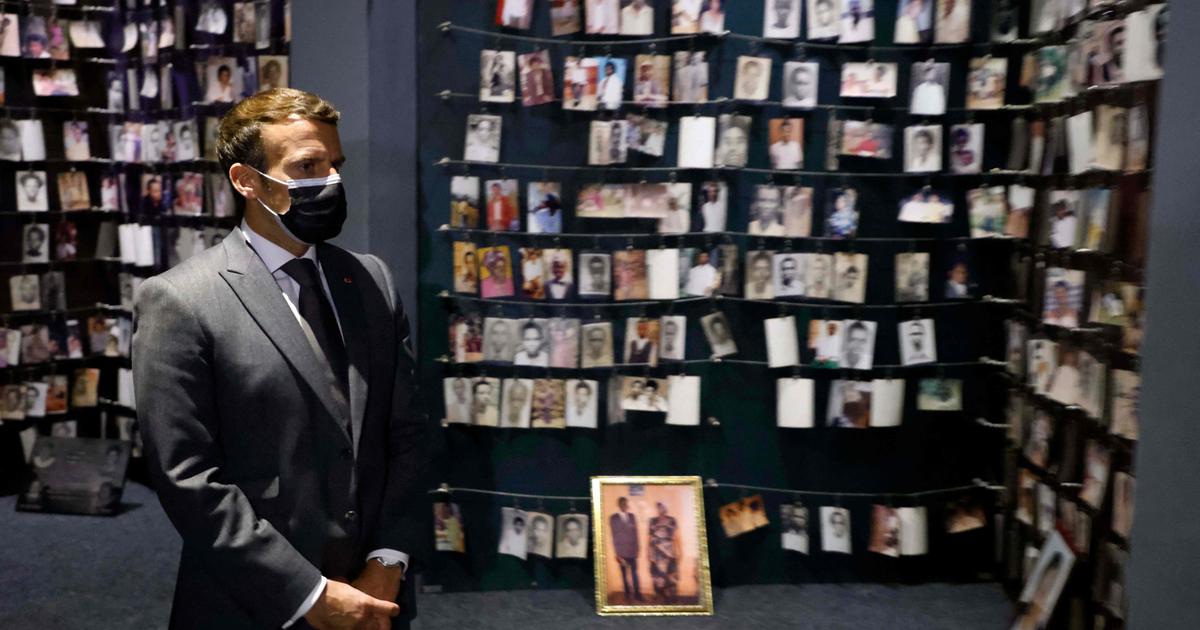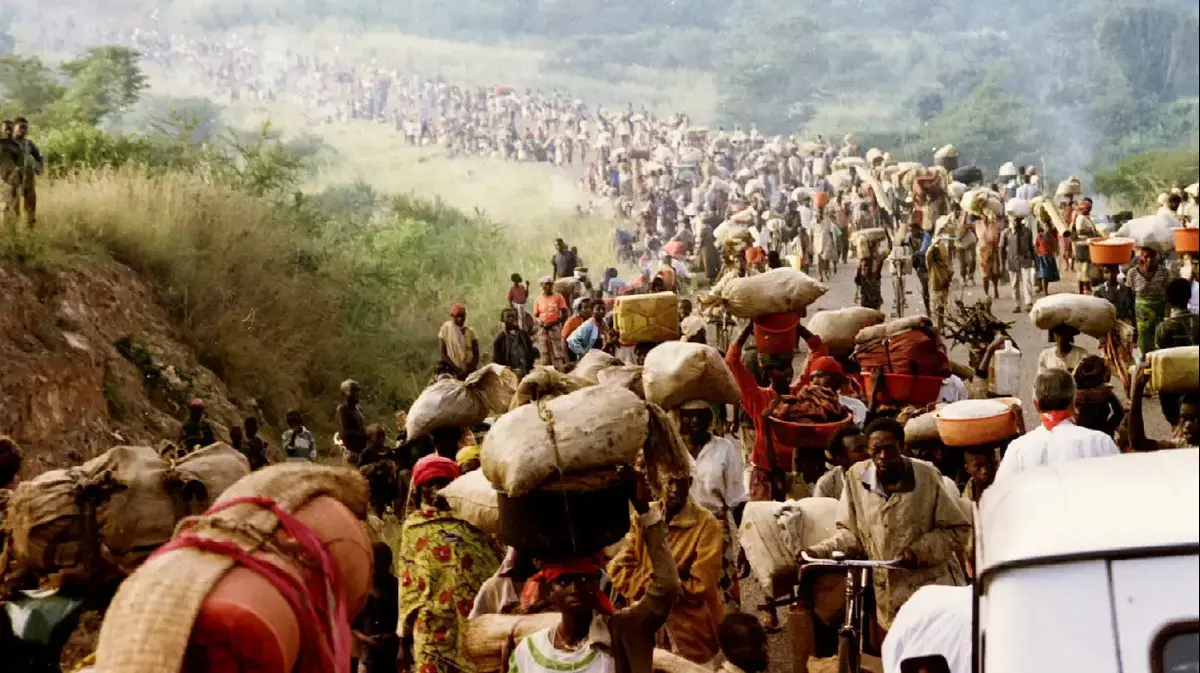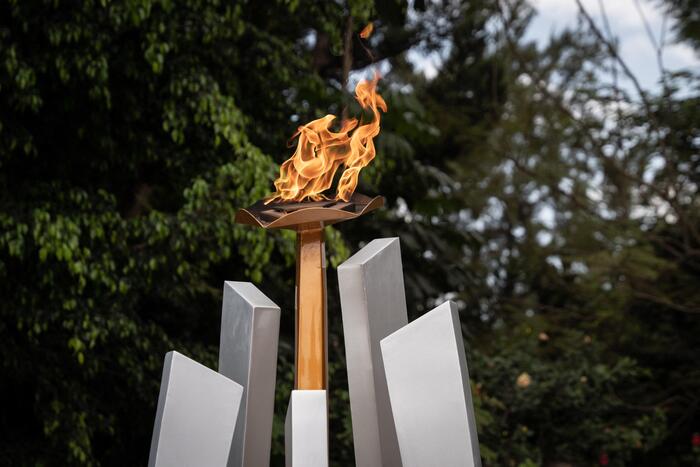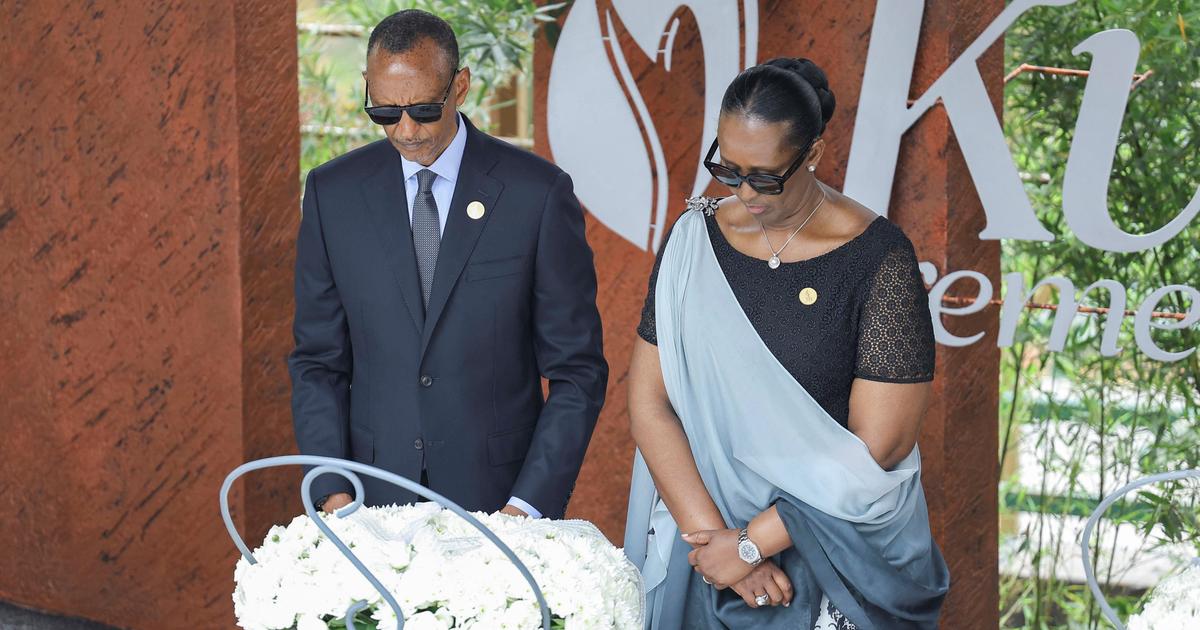Every country has its shadow zone, a past that is painful to face and sometimes ends up stored in a closet.
For France, these moments were, in the 20th century, collaborationism during the Nazi occupation between 1940 and 1944, and the crimes of the war in Algeria between 1954 and 1962. But there is another one closer in time, and with greater diplomatic implications. and legal: the genocide of more than 800,000 Tutsis in Rwanda between April and July 1994 perpetrated by the Hutu regime, which for years had the military and political support of Paris.
Almost three decades later, President Emmanuel Macron wants to clarify the role of France.
The effort has an academic purpose.
But there is more.
It can have consequences in the present, because many of the protagonists are alive.
And it opens a door to normalize relations with the small African country of 12.6 million inhabitants, marred by the genocide.
The first step is a nearly 1,000-page report published at the end of March, written by a team under the direction of historian Vincent Duclert after nearly two years of working with 8,000 documents in archives that, in many cases, were classified.
"You had to open the windows," says Duclert during an interview in a park - an obligatory pandemic - in front of the Brienne palace, headquarters of the French Ministry of Armies.
By "opening windows", this historian who specializes in the genocide of the Armenians and in the
Dreyfuss case
refers to the need for air to circulate and light to shine on an uncomfortable past.
"That was a collapse," he reflects, "and in this consistent the courage of the truth: to say it."
The conclusion is resounding.
“Was France an accessory to the genocide of the Tutsis?
If by this we mean a desire to be associated with the genocidal operation, nothing in the archives consulted comes to prove it ”, reads in the last pages of the report
France, Rwanda and the genocide of the Tutsis (1990-1994)
.
Experts add: "France, however, was involved for a long time with a regime that encouraged racist massacres."
A few lines below, he concludes: "The investigation thus establishes a set of responsibilities, serious and overwhelming."
"France contributed to reinforce, without knowing it, the genocidal process," explains Duclert to EL PAÍS.
He did so by assuming "a binary and ethnic vision" of a Rwanda divided "between Hutus and Tutsis."
"This led France to defend the dictatorship of Juvénal Habyarimana [President of Rwanda between 1973 and his death in 1994]", he continues, "as if it were a representative regime, as it was of the majority people, although in this majority Hutu people there were opponents that they did not share the ethnicist vision, which was that of the Belgian colonization and which was what led to the genocide ”.
The report documents how, since 1990, President François Mitterrand saw in Rwanda a laboratory of the new African politics after the fall of the Wall, and in Habyarimana a favorite pupil.
On paper, it was about containing the supposed advance of the United States in Francophone Africa and promoting democratization in exchange for development aid and military and political cooperation.
In reality, according to the Duclert Commission, Paris confused "democracy" with "dominance of a majority ethnic group."
And the cooperation became a decisive endorsement, by the so-called homeland of human rights, for a regime in which the murder of nearly one in six ethnically motivated Rwandans was brewing.
"There are overwhelming responsibilities of the French authorities in the process that leads to the genocide and in the repeated and proven blindness that leads to averting red flags and critical thinking," says Duclert.
“It is the inability to see that, behind the inter-ethnic massacres, something was being prepared that had nothing to do with this: the decision and the organization of the annihilation of the Tutsis.
That is why we speak of cognitive responsibilities.
The French authorities did not understand anything.
And it is very serious, taking into account, in addition, the ambition of France to enlighten humanity with its thought ”.
France's role in the Rwandan genocide
To intervene or not to intervene
It is necessary to draw a fine line to distinguish where the "overwhelming responsibility" ends and the "complicity in the genocide" begins.
“We have approached this question as historians.
We are not judges, ”says Duclert.
“Complicity”, he adds, “consists in voluntarily associating oneself with the genocidal operation, in the same way that a certain number of French officials of the Vichy regime were associated, through anti-Semitism, with the extermination of the Jews of Europe by the regime. Nazi.
In Rwanda, we have verified that there is no complicity, because none of the files consulted show a willingness on the part of France to call for the extermination of the Tutsis or to support the genocidal Hutus in their operation ”.
Former Foreign Minister Hubert Védrine - who at that time served as secretary general of the Elysee and was in the control room of power - has welcomed the fact that the report sets aside France's complicity in the genocide.
"It was not only a foolish accusation, but a monstrous and faulty accusation," he said in an interview with Radio France Internationale.
When the interviewer asked him about Paris's support for the Rwandan regime while genocide was being prepared, he said he "disagreed."
The Rwandan government, in a statement, described the Duclert Commission report as "an important step towards a common understanding of France's role in the genocide against the Tutsis."
Institutional and personal bankruptcy
"A crisis of public action."
This is how the Duclert Commission report sums up France's role during the 1994 Rwandan genocide. Researchers describe a double bankruptcy.
First, institutional: that of a system, that of the V French Republic, which grants enormous prerogatives to the head of state without strong counterpowers to soften or prevent the errors of its owner.
The second bankruptcy is personal: that of President François Mitterrand, who surrounded himself with a clique that bypassed those responsible in the diplomatic corps or in the military hierarchy, and participated in a gear in the small African country that proved fatal.
“In France”, says the report, “faced with the concern of ministers, parliamentarians, high officials, intellectuals, the only response was indifference, rejection or bad faith.
This alignment with Rwandan power comes from the will of the head of state and the presidency of the Republic.
The exercise of presidential authority guarantees high powers in diplomatic and military matters, particularly with regard to Africa.
The marginalization of institutions with divergent positions and the exile of critical thinking also characterize this Rwandan history of France, which in many respects resembles a crisis of public action ”.
Historian Vincent Duclert, director of the group of experts that produced the report, explains that things have surprised him in the course of their work.
"The first," he says, "are all the traces that have remained of practices that we have described as irregular and that, due to their high number, become a problem of democratic functioning of republican institutions."
The private staff of the President of the Republic - his military advisers - issued orders to units on the ground that bypassed established channels.
Either it imposed a vision that, for example, described the Rwandan Patriotic Front of current president Paul Kagame as "black Khmer", spoke of "inter-ethnic massacres" instead of "genocide" or abounded in the theory of "double genocide" (Hutus contra Tutsis and vice versa), as did Mitterrand himself.
"The second discovery," says Duclert, "is that there was a minority of actors who defended the right to the truth."
They were lucid diplomats, military and politicians with a little more influence from the arrival of the right to the government in 1993 and the cohabitation of a conservative prime minister with the socialist Mitterrand who understood that France was heading for disaster in Rwanda.
"We have found reports, messages, alerts that show that this Republic also worked," sums up the historian, "but this minority was crushed."

/cloudfront-eu-central-1.images.arcpublishing.com/prisa/BTQZK5PP7FGGDIAWO6PETGTLLY.Jpg)







